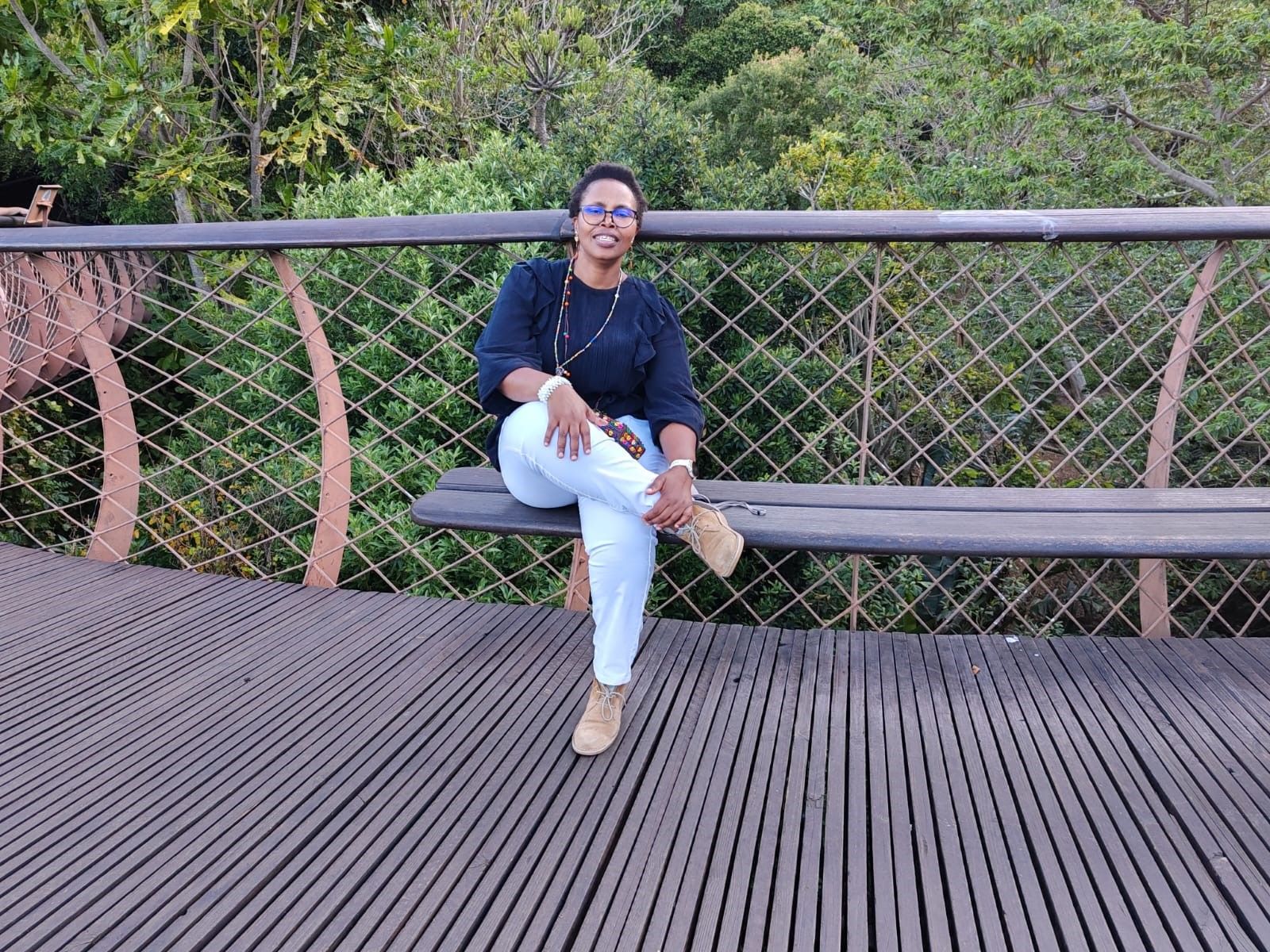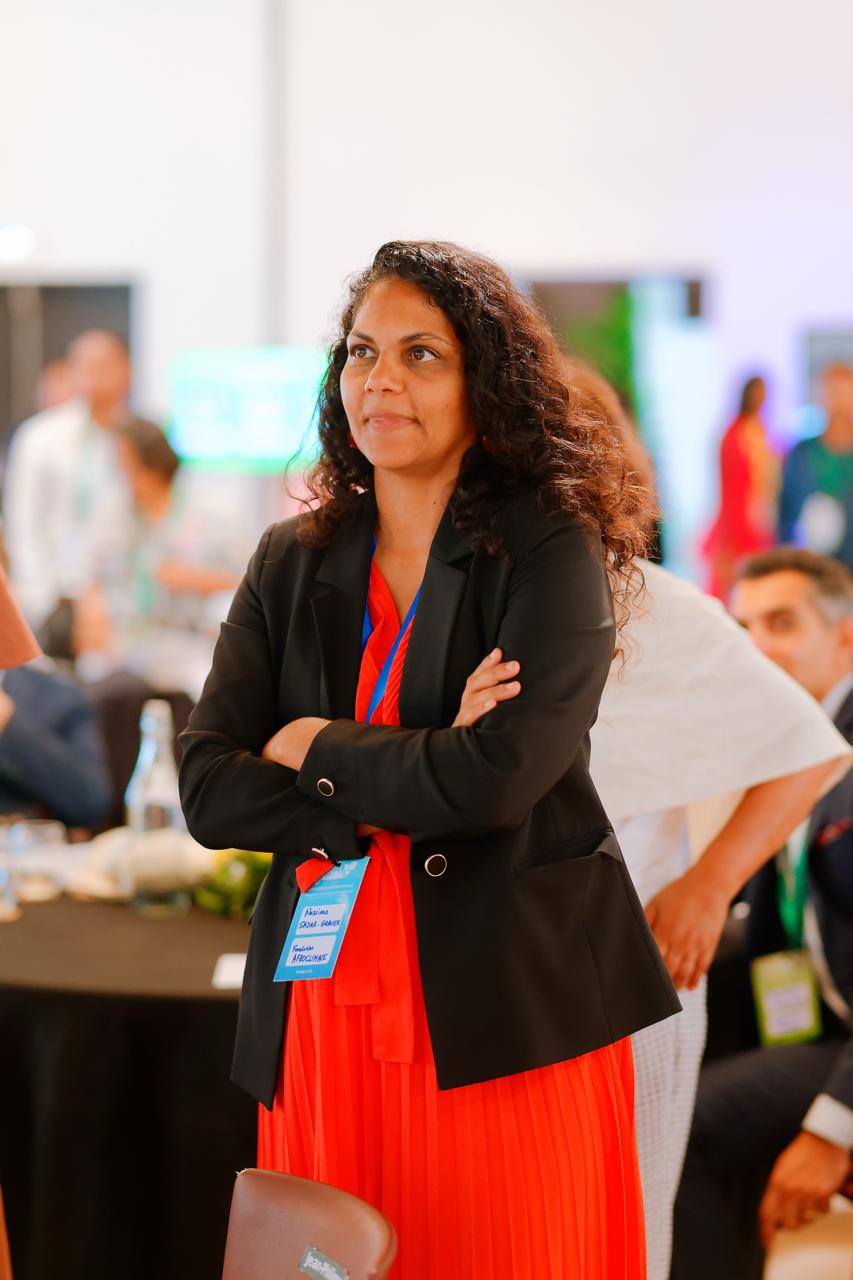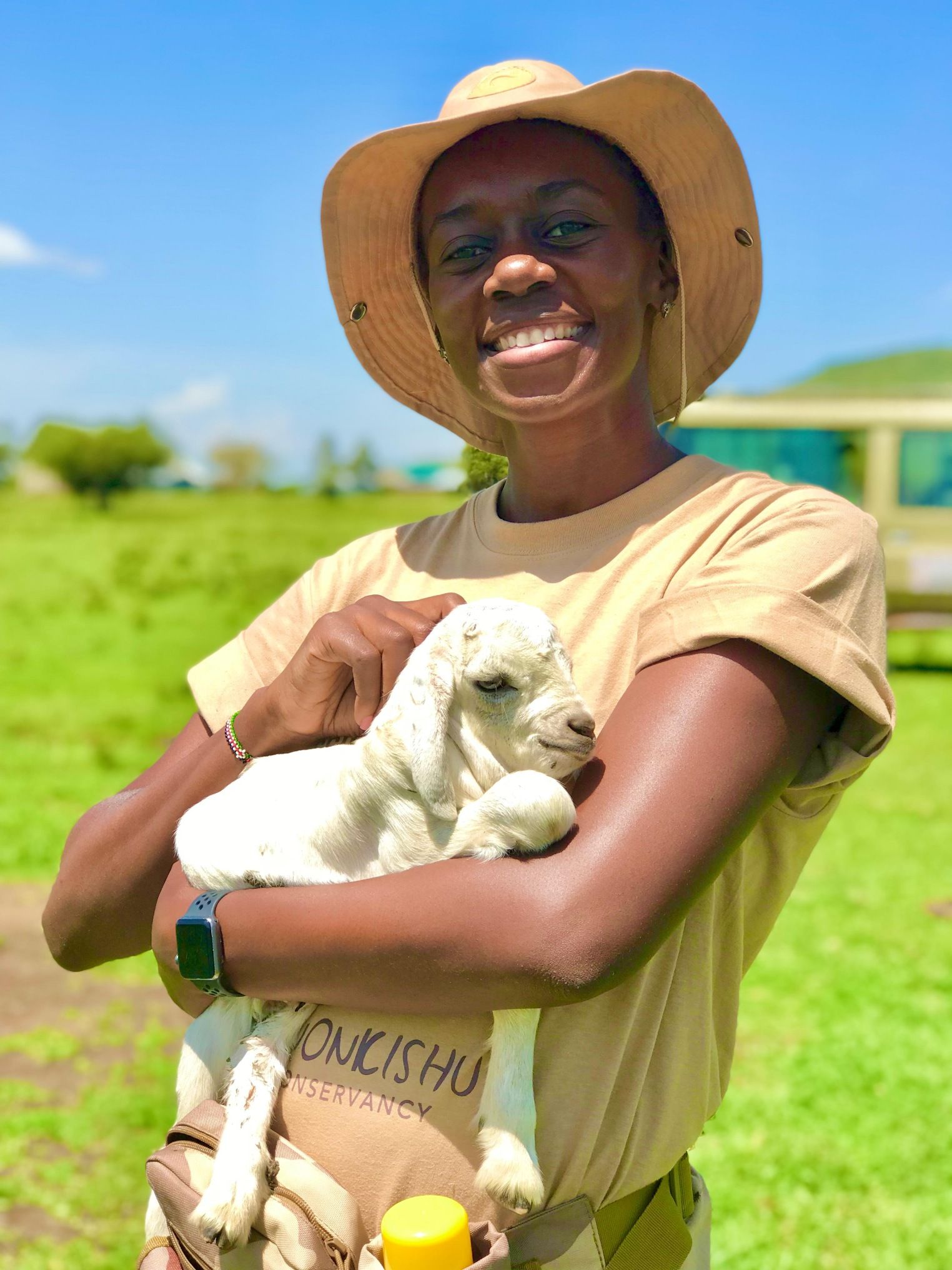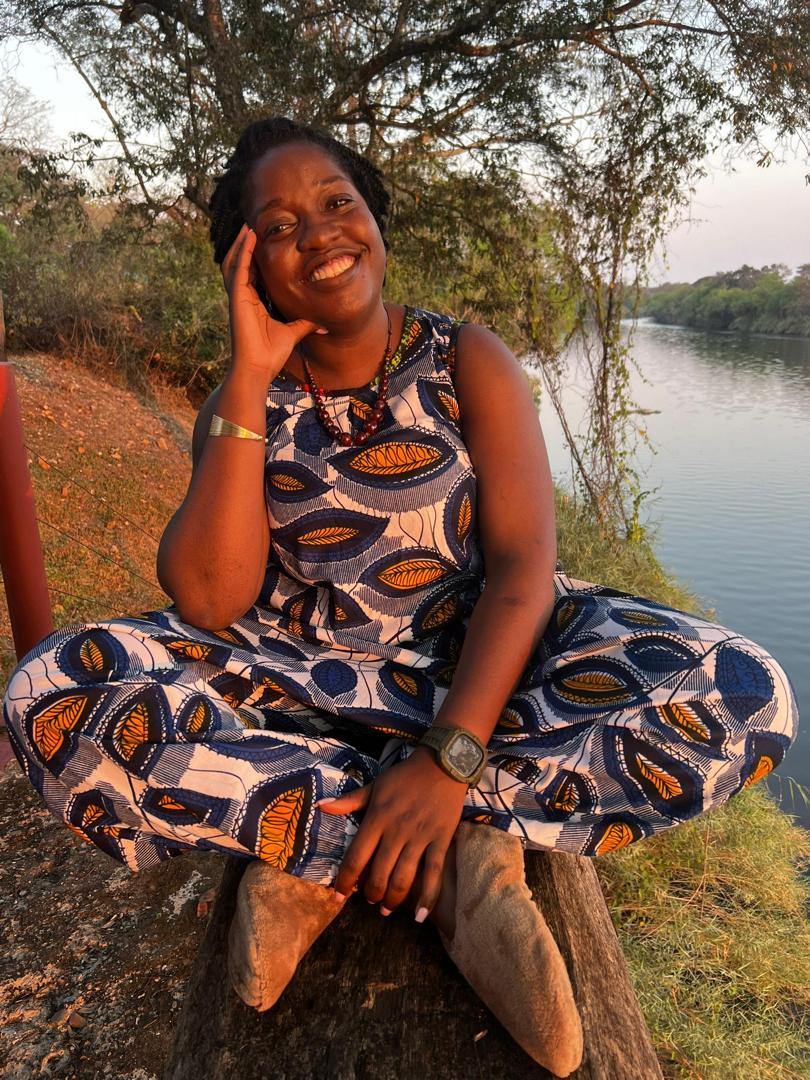Over time, I realised the power of authenticity—embracing who I am and letting everything fall into place, regardless of other people's opinions.
Nondumiso (Ndumi) Magija is breaking barriers and setting precedents as she navigates uncharted territories in her field. Her journey is not only defined by her impressive professional accomplishments but also by the serene strength she brings into spaces.
A seasoned environmentalist with over 20 years of dedicated service in the public sector, she has spearheaded numerous initiatives for green spaces and created a deep appreciation for South African flora.
Her leadership has been instrumental in the success of community-driven projects, including the Community Gardening Programme, with over 100 participating groups in Cape Town, and the South African National Biodiversity Institute's Outreach Greening Programme across the Western Cape Province.
Presently serving at the South African National Biodiversity Institute, Ndumi manages the Free State National Botanical Garden in Bloemfontein.
The Women for Environment 2023 fellow shares her story with Damaris Agweyu.

Ndumi, what is your general philosophy towards life?
"Anything can happen". If you set your mind to it, anything can happen. If you don't take the necessary steps to confront situations, anything can happen. And so, you need to decide what you want to happen, and then the universe aligns to help you achieve it.
I'm smiling as I say this because I love watching rugby and, sometimes, I see a team winning and start to relax. And then the other team scores. There is always potential for a turnaround. Anything can happen.
You love to watch rugby?
Yeah, it comes from having raised boys.
If you could have an hour-long conversation with anyone in the world, who would it be?
I'd pick Advocate Thuli Madonsela, South Africa's former public protector. What intrigues me about her is her embodiment of soft power. I speak softly, but she speaks so very softly.
Because of her role as a public protector, she took on some mighty people. And she got results. It would be lovely to ask her, "How did you navigate all these environments with such soft power?"
In a world where the loudest voices often take the spotlight, how do you embrace your soft power?
As a leader, my approach has always been gentle and collaborative. I like other people's voices to be heard.
Even though I've always been sure of myself, I've grappled with the idea that maybe if I were louder, people wouldn't doubt me. I spent so many years trying to fit into moulds that weren't me. But over time, I realised the power of authenticity—embracing who I am and letting everything fall into place, regardless of other people's opinions.
Now, I understand that I am enough just as I am. So, I celebrate each moment of my journey without constantly comparing myself to others.
My WE Africa experience has definitely been a process of reclaiming my power. I've acknowledged things about myself that I might not have fully understood before. I am now OK with who I am.
What led you to the world of conservation?
I was raised by my grandmother, who loved plants. I hardly remember going to see a doctor because she always used medicinal plants for healing. And so, the connection between nature and well-being was made very early on for me.
While I studied Horticulture at the University, from the onset, I loved working with communities and focused on outreach work with schools and townships in Cape Town. I was consistently drawn to roles that bridged the gap between community and conservation.
In the history of Apartheid in South Africa, there was a focus on the white urban areas, and resources were always channelled into those areas. For everyone else, greening was at the bottom of the list. Moreover, white people were seen as the only ones who cared about the environment. This is simply not true. But it's the message that continues to be perpetuated. And then people focus on the conservation of nature, with little interest in human lives. Yes, nature must be protected, but we should also create spaces purely for recreation. People shouldn’t have to travel for kilometres to get to a green space.
Having grown up in rural South Africa, I developed a deep love for green spaces, not necessarily for their conservation value but for their role in creating thriving economies within communities. My passion became preserving these spaces amidst rapid urbanisation. And because I'm drawn to the underestimated, the people who are treated as underdogs, I strongly advocate for the inclusion of indigenous people in conservation. The common trait in my career has always been creating the link between people, plants and community development.

Which plant best embodies who you are?
If you'd asked me this question before my WE Africa journey, I would have confidently told you the Restio (Chondropetalum tectorum). It's not a stand-out plant, but it's adaptable and can thrive in environments where there is little to work with. You can break bits and pieces off it, but it still stands strong. I can definitely relate to that resilience and adaptability. The fact that it's not flashy resonates with the fact that I have always been comfortable in the shadows, quietly sure of myself, and often shifting the shine to others.
Following my WE Africa journey, I see myself also resonating with the Baobab tree (Adonsia digitata). It's a solid, majestic tree that stands firm through storms. The stem of the Baobab has been used by people for various purposes, especially in Africa: storage barns, pubs, water reservoirs and many more. Its roots spread far and wide, impacting the surroundings. This reminds me of the unseen influence we can have on others.
The contrast between the two plants reflects who I am – resilient and adaptable like the Restio, yet like the Baobab, I am learning to stand tall and own my strengths and successes.
What are some instances in your life that gave you resilience?
The first is my divorce. I'd grown up believing in my "happily ever after", and being the planner I am, I sometimes forget that I'm not always in control of everything. So, getting divorced three years into the marriage was hard to deal with. My kids were three and one, and I was in a church that said if you're a Christian, you cannot get divorced. Even though people told me I was making the wrong decision, I went through with it and did everything I could to ensure my kids could live the life they deserved. I realised that just because my marriage was broken, it didn't mean I was broken. I could continue with life and still thrive. Doing this helped me navigate many other complex spaces in my life.
The second experience comes from being put in positions and spaces where people thought that because I was a woman and black, I wasn’t deserving. I'd get comments like, how old are you? You are so lucky to be here! This happened a lot when I went to Cape Town, which has a lot of white domination in the senior positions in the conservation space.
In one situation, I was the first African person to lead a diverse team of managers and the first in an area that had never had a black manager, let alone a woman. I struggled to get my voice heard, which meant working extremely hard to prove to myself and others that I deserved to be there.
Those circumstances have strengthened me, but the core of my strength really comes from my grandmother. She was a very important figure in my life.
What was she like?
She never held back from expressing herself or taking action. She stood out as a leader in a community where men traditionally spoke up and took charge. Even when my grandfather didn't take the lead, she did. I remember when we moved to a new area, she was the one who built the house. People didn't like that. As a child, I also thought she was odd.
Children at school would comment that our family was different because of her assertiveness. It felt uncomfortable then, but as I matured, I began to understand the depth of her strengths. Watching her overcome tough challenges in her time made me believe nothing is impossible.
How did Apartheid affect you?
Firstly, it dictated which schools I could attend. I couldn't go to a school in the suburbs. I had to be in a Township school. The curriculum was different from that of my white counterparts. I was forced to study languages like Afrikaans, which I had no interest in.
It also dictated where we could live—these matchbox houses predominantly in the Cape Flats.
The most significant impact was my career. Even after Apartheid ended, its legacy persisted in the spaces I entered. People didn't expect and sometimes didn't want, individuals like me to be present. Barriers were created, and I was outrightly discredited and dismissed.
I often had to prove myself to my white counterparts, especially in spaces where I became one of the "firsts" in senior positions. I think this architecture of Apartheid still exists even though people are trying to dismantle it. The privilege that some still enjoy due to its legacy means I need to have a strong back to withstand the challenges that arise in these spaces.
Sometimes, such experiences can leave people bitter.
I have moved on. It's a journey that involves processing the experiences rather than accepting them passively. It's saying, "I see what happened. I see you are behaving this way because of my race, and I'm not letting that hinder my progress."
In 2013, I started getting coaching that allowed me to process my emotions. And later, WE Africa helped me better understand the injustices I had been facing in the environmental space. It has fuelled my passion for creating a better, more inclusive world.
It all goes back to my "anything can happen" attitude. I choose to focus on things that build me. I've also realised that when I've occupied those different positions with little support, my guard went up, which was very stressful because I'm like, OK, I'll do what I'm supposed to do, but I don't want to go out there and innovate or explore. My perception was that every white person and every male was against me. But it was just a perception based on prior experiences.
Along the way, I have attracted many people who see the value in what I have been doing. And because success has a magnetic effect, even those who might have initially been resistant started recognising the positive impact I am creating.
***
This interview is part of a series profiling the stories of the 2023 WE Africa leadership programme fellows, African women in the environmental conservation sector who are showing up with a strong back, soft front, and wild heart.





